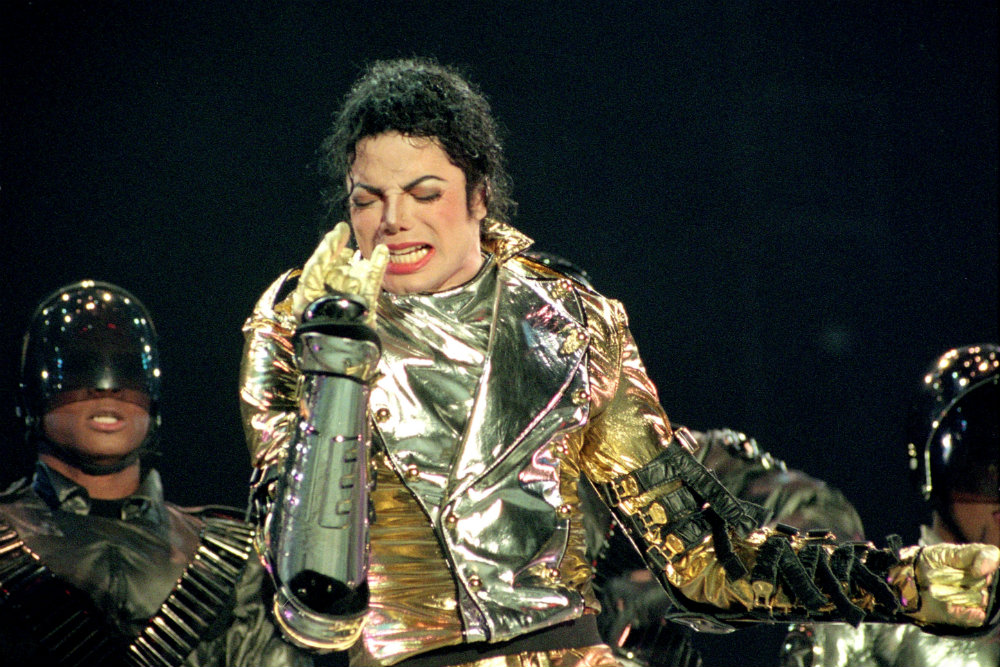The low-key presentation of HBO’s documentary Leaving Neverland belies the weight of the allegations its subjects, Wade Robson and James Safechuck, make against Michael Jackson. The two men, who say they were sexually abused by the late music icon when they were boys, detail a pattern of behavior that allowed both them and their families to feel safe initially; an escalation of abusive behavior as the boys became teenagers; and a re-emergence in their lives when Jackson was taken to court over other allegations of abuse.
Jackson’s estate has denied the allegations made by Robson and Safechuck, and is suing HBO for $100 million, claiming the cable outlet violated a non-disparagement clause in a contract for a 1992 concert special. Here are some of the most shocking allegations in Leaving Neverland, which premiered Sunday night (March 3) on HBO and concludes Monday (March 4). Both parts are available for streaming on HBO’s digital platforms.
Jackson groomed families as well as his alleged victims.
Both Joy Robson, Wade’s mother, and Stephanie Safechuck, James’ mom, say Jackson for a time felt like another son to them. (Jackson met James when they starred in a Pepsi commercial and Wade when the boy’s Jackson impersonation led to an onstage appearance in Wade’s native Australia during the Bad tour.) He visited both families’ homes and hosted them at homes he owned, including Neverland Ranch. His childlike persona and, the documentary implies, the overwhelming nature of his fame helped convince the families that Wade and James would be safe in his company.
Neverland had multiple places for Jackson to take his victims.
As Safechuck tells it, Jackson’s Santa Barbara County property had several spaces where he took the boy for sexual encounters, from a room adjacent to the main house’s home theater to a bedroom above the theme park’s train stations. The hallway leading to the singer’s bedroom had a series of bells that sounded if someone was approaching.
Jackson sowed an us-against-them mentality in the boys.
Robson and Safechuck discuss at length how Jackson told them not trust other people — women in particular — and that no one would understand their “love.” He allegedly told the boys that they would go to jail along with Jackson if anyone found out what they were doing. Safechuck also says he and Jackson would practice “drills” about what to do if someone were to walk in on them.
Jackson’s favored sexual tactics.
Both men describe a gradual escalation from touching to more involved acts. They allege that Jackson preferred to have them kneel on hands and knees at one corner of his bed while he masturbated from the opposite corner while looking at them. Robson describes one such encounter where he would either have to look back at Jackson or in front of him at a cutout of Peter Pan. Both allege he had them perform oral sex on him and did the same to them; as they got older, he showed them graphic pornography.
Jackson and Safechuck got “married.”
One of Leaving Neverland‘s most powerful moments comes about 90 minutes into part one, when Safechuck recounts how Jackson used the boy’s love of jewelry against him, including buying him a wedding ring to cement their commitment to one another. A visibly upset Safechuck shows the camera the ring and other pieces he says Jackson gave him as rewards for sex. They would go to jewelry stores on the pretense of buying something for a woman, Safechuck alleges, using his smaller hand as a guide for size.
Jackson counted on both for support in court cases.
Part two of Leaving Neverland spends a good amount of time on two court cases against Jackson. As boys and, in Robson’s case, as an adult, both said in legal proceedings that Jackson had never violated them. When Jackson was accused of abusing boys in 1993 and 2003, he repeatedly called both and pressed them to testify on his behalf. His lawyers subpoenaed Robson in the 2004-05 trial, where Robson again said Jackson had never acted inappropriately with him. He tells director Dan Reed he wasn’t ready, emotionally or psychologically, to speak the truth at that time.
It took years for Robson and Safechuck to understand they were abused.
As Robson put it, for years he believed that “I loved him and he loved me, and [sex] was something that happened between us.” Safechuck told his mother of the abuse in the days following the 2003 accusations against Jackson, when the singer was pressuring the family to speak on his behalf. Robson took longer to face up to the truth. Robson sued Jackson’s estate in 2013, but the case was dismissed after a judge found he hadn’t filed it within the statute of limitations.
This story originally appeared on The Hollywood Reporter.





